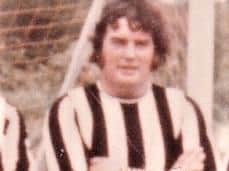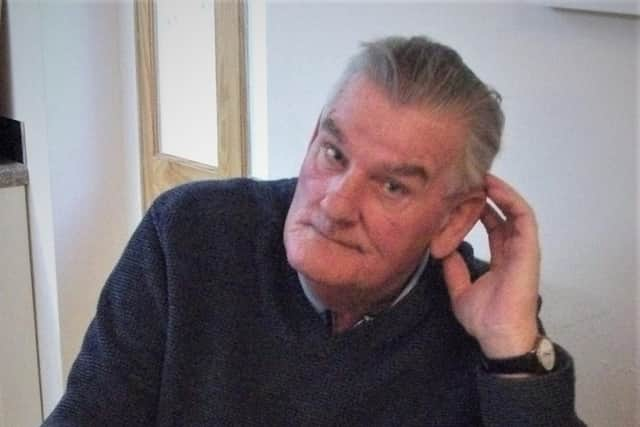Northampton family’s plea for information about power station conditions in the 1960s after dad’s cancer death
and live on Freeview channel 276
A family is appealing for information about the conditions experienced by workers at a power station in the 1960s after their dad died from lung cancer.
Brian Neil, from Northampton, started working as a sandblaster in his 20s at Didcot Power Station in Oxfordshire.
Advertisement
Hide AdAdvertisement
Hide AdKnown as Bris to many people, Brian was diagnosed with lung cancer in 2016 and then died in October 2018 at the age of 74.


In his younger years, the father-of three and grandfather-of-two also played in goal for a number of amateur football teams, including Silverstone FC
Brian’s daughter, Karen Rumsey, said: “When he was younger Dad was such a fit and active person. However, that changed following his diagnosis.
“His health rapidly deteriorated after he was diagnosed with cancer. Seeing him as the cancer took hold of him was terrible.
Advertisement
Hide AdAdvertisement
Hide Ad“It may be more than two years since Dad died but coming to terms with what happened remains difficult.”


Following Brian’s death, his family instructed industrial disease lawyers at Irwin Mitchell to investigate whether his illness was caused by exposure to silica - tiny particles often found in the dust of rocks, clay and sand.
The family and legal team are now appealing for information from Brian’s former colleagues about the conditions he faced while at the power station.
Karen added: “Having so many unanswered questions about what caused his illness makes his death harder to accept.
Advertisement
Hide AdAdvertisement
Hide Ad“We know nothing can bring Dad back but we want to at least honour his memory by finding out why he died.
“We would be so grateful to anyone who came forward with information about his career. Any tiny piece of detail could be vital in helping our family.”
Alex Shorey, industrial disease lawyer at Irwin Mitchell, continued: “Brian’s death continues to have a profound effect on his family who have many unanswered questions as to what caused his illness.
“Through our work we see the devastating consequences exposure to silica can have on people. We are now investigating whether Brian was exposed during his career at Didcot Power Station.
Advertisement
Hide AdAdvertisement
Hide Ad“Nothing can make up for their loss but we are determined to provide Brian’s family with the answers they deserve.
“Therefore any information about the working conditions Brian faced could prove vital in providing Karen and the rest of the family with some form of closure.”
Anyone with information about working conditions Brian faced at Didcot Power Station should contact Alex on 0121 214 5493 or email [email protected].
Message from the editor:
Thank you for reading this story on our website. While I have your attention, I also have an important request to make of you.
Advertisement
Hide AdAdvertisement
Hide AdIn order for us to continue to provide trusted local news on this free-to-read site, I am asking you to also please purchase a copy of our newspaper while out for your essential shopping.
Our journalists are highly trained and our content is independently regulated by IPSO to some of the highest standards in the world. The dramatic events of 2020 are having a major impact on many of our local valued advertisers and consequently the advertising that we receive. We are now more reliant than ever on you helping us to provide you with news by buying a copy of our newspaper.
Thank you
Comment Guidelines
National World encourages reader discussion on our stories. User feedback, insights and back-and-forth exchanges add a rich layer of context to reporting. Please review our Community Guidelines before commenting.